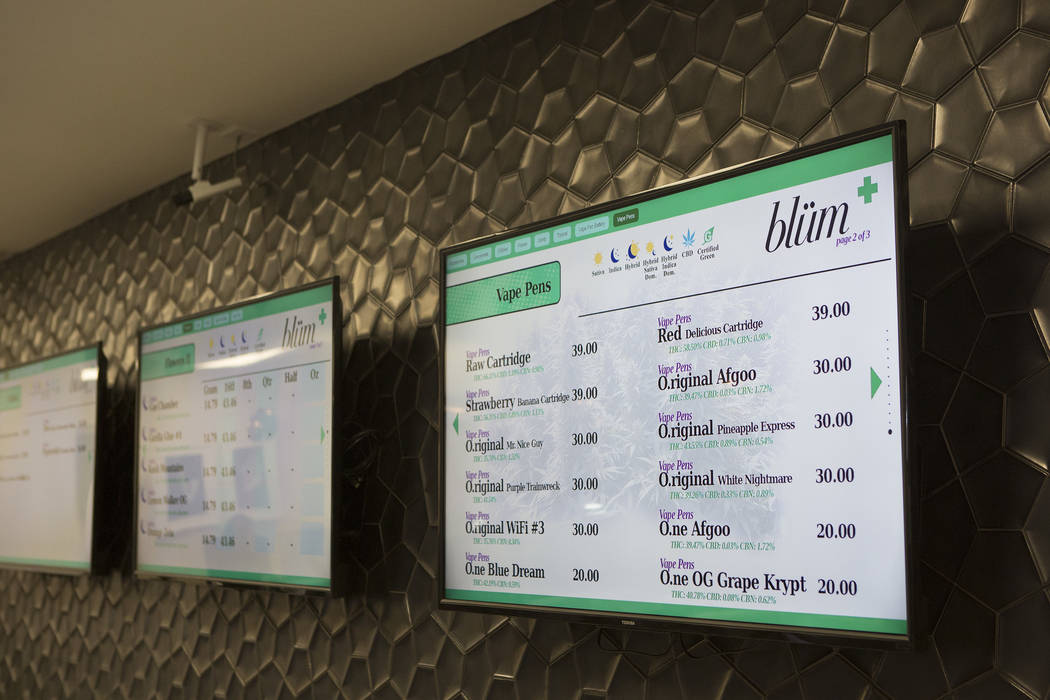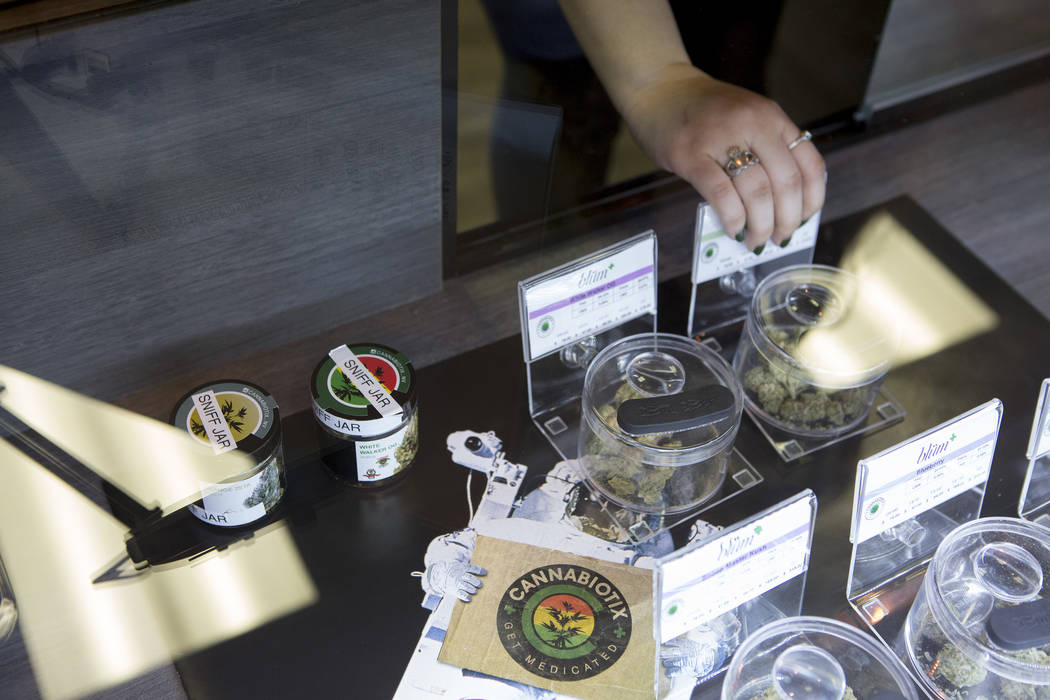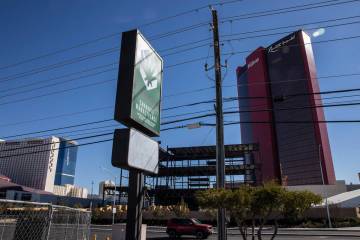Identities of Nevada’s marijuana licensees would be public under draft regulations
There appears to be little appetite to shield the identities of the people who want to cash in on Nevada’s sprouting marijuana industry.
A state law to protect the privacy of patients allowed more than one-third of the businesses that applied for a medical marijuana license in Nevada to keep their names, ownership interests and even proposed locations confidential.
But a draft of temporary regulations for recreational licenses excludes that provision. The details of what business information will be public for recreational companies will likely be hashed out during a public workshop on those proposed regulations on March 29, said Department of Taxation spokeswoman Stephanie Klapstein.
But there likely will not be a push for secrecy from those in the marijuana industry, according to Riana Durrett, executive director of the Nevada Dispensary Association.
“That doesn’t seem like a high priority this time,” Durrett said. “Most of these owners are proud of their contributions to the industry. I have not heard a single member push to make sure we have that same privacy law in recreational.”
Jason Sturtsman, a patient advocate and owner of marijuana production facility HOPE, said pot business owners try to stay private because of fear of a federal crackdown or of being a potential target for thieves, since most marijuana businesses have to deal in cash only.
But, Sturtsman added, having businesses more open to the public “absolutely” helps legitimize the industry.
“Transparency definitely, really helps,” he said.
In other states with legal marijuana, the public has easy access to basic information about any business that applied for a marijuana license. In Washington, where recreational sales were approved in 2012, the state lists in a downloadable spreadsheet all the businesses that applied for a license, their address and phone number, as well as if they were approved or denied.
Language in the Nevada medical marijuana law that took effect in 2001 gives that discretion to marijuana businesses. They can choose to keep that information confidential, or sign a waiver to make it public. Of the 500-plus businesses that have applied for state licenses, 190 — 37 percent — chose secrecy.
But because medical marijuana businesses need both state and local licenses to operate, several state-approved companies were forced to reveal themselves at the local level.
Clark County, for example, released records for all 18 dispensaries it approved, showing full details of the businesses’ ownership interests.
“I don’t see a legitimate reason why someone should be a hidden partner,” Clark County Commissioner Chris Giunchigliani said Wednesday. “We wanted to make sure we were very cautious about who was contributing to whom.”
The move caused some to grumble, Giunchigliani said, but most of the owners were forthcoming when the county asked for ownership information.
Going forward into recreational sales in a time when the Trump administration has hinted at cracking down on marijuana, the cannabis industry in Nevada should be as transparent as possible to show its legitimacy, Giunchigliani said
“If you don’t want to invite the federal government to come in, you ought to be as open as you possibly can,” she said.
Contact Colton Lochehad at clochhead@reviewjournal.com or 702-383-4638. Contact @ColtonLochhead on Twitter.
Workshop scheduled
The Department of Taxation is holding a workshop to hear public comments about the department's proposed temporary regulations of recreational marijuana sales.
When: 10 a.m. on March 29, 2017
Where: Nevada Gaming Control Board, Grant Sawyer Building. 555 E. Washington Ave, Las Vegas, Nevada.
























